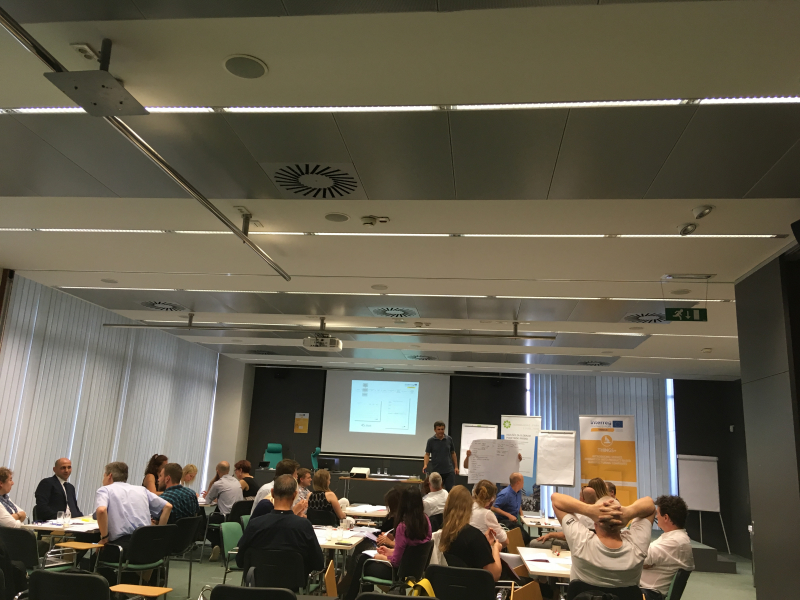Things+ Train-the-trainer workshop on Servitization
11. 07. 2018

At the end of May 2018 Technology park Ljubljana hosted a very interesting workshop called Train-the-trainer. From the 28th to 30th of May more than 30 experts from different product & business development sectors participated in this Worksop, enabling them to efficiently impart knowledge about servitization and help manage processes in their companies.
The workshop Train-the-trainer was presented as part of the EU Interreg Central Europe project THINGS+ - Introducing service innovation into product-based manufacturing companies. The need for this project arouse because Central European industries are still mainly focused on manufacturing of products. Despite the investments in innovation technologies, their competitiveness is seriously challenged due to the commoditization and low-cost competition from non-EU countries. It is estimated that the process of servitization could have a positive impact on service innovation and therefor bring companies competitive advantage.
Servitization is a new buzzword in the business world and can literally mean more money and customers for companies. It means creating additional services that complement existing products. To companies it brings additional income (additional profits from existing customers) and, very often, new customers (additional income and access to new markets). To customers, servitized products create greater value for their money and more compelling reason to buy again. Servitized offer often results with a longer relationship with the customers and a more stable revenue stream.
Already tested and proven
THINGS+ SIM - Service Innovation Methodology is not based on something new – big companies invest in servitization projects for decades – like Rolls-Royce with their jet engines, Hilti with their power tools, Mercedes-Benz with car2go etc. What’s new is the fact that our service innovation methodology is now simpler, quicker and cheaper to use, so even very small companies can benefit from it – it is deliberately adapted to support SMEs’ needs and capabilities. Key idea is to enable SMEs to do the same things the big companies are able, but mostly based on their own people, within a short (six months) timeframe and limited (or even without) investment requirements.
This and more was expected of the workshop Train-the-trainer, where participants went trough a very intense 3-day workshop. Phase 1 of the workshop focused on mapping (creating a Value Map and Product Attributes Map) and the Customer Segment. Phase 2 presented Servitisation Opportunities, followed by Phase 3 where the participants focused on the importance of a Business Model, Strategy and Implementation. The workshop was led by the servitisation expert Boris Golob, the CEO at STEP RI Science & Technology Park University of Rijeka. The participating SME company’s representatives got to work with experts fluent in state of the art service innovation management methodology during the workshop. They experienced a structured and focused process with clear and pragmatic result orientation, the creation of new income and access to new markets and customers (based on the servitized products).
By introducing servitization of products through an adequate human capital investment, the traditionally product-based firms will cope with changing market forces and shrinking markets and may act as regional innovation motors with no need of high investments. The process of servitization of industries is a trend in the most developed EU regions and can be accelerated in Central Europe thanks to the capacity building actions. The transnational approach helps regions understanding the potential impact of service innovation as a driver for industrial transformation and competitiveness and tailoring regional service innovation-related policies to be integrated into mainstream innovation policies.
Follow THINGS+ on project website >>

